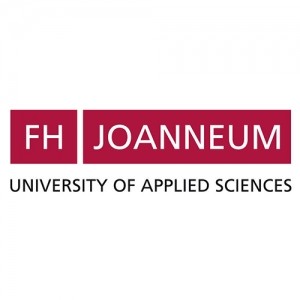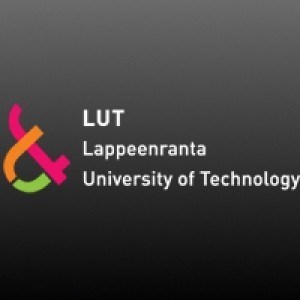overview: The Bachelor of Mineral and Energy Economics at Curtin University offers a comprehensive education designed to equip students with the skills and knowledge necessary to excel in the dynamic and resource-driven industries of mineral and energy sectors. This program combines core principles of economics with specialized understanding of the mineral and energy industries, focusing on topics such as commodity markets, resource management, project evaluation, and sustainable development. Students will gain a solid foundation in economic analysis, financial assessment, and strategic decision-making, tailored specifically to the unique challenges faced by mineral and energy companies. The curriculum includes modules on global commodities markets, environmental considerations, regulatory frameworks, and technological advancements impacting resource extraction and energy production. Practical experience is emphasized through industry projects, case studies, and potential internships, enabling students to apply theoretical knowledge to real-world scenarios. Graduate outcomes include careers in resource economics, market analysis, project development, and consultancy within the mineral and energy sectors, both nationally and internationally. The program fosters critical thinking, analytical skills, and a deep understanding of economic principles as they relate to the sustainable development and efficient operation of natural resources. With access to Curtin’s extensive industry connections and research facilities, students are well-prepared to enter a competitive job market and contribute to the responsible management of our planet’s vital resource industries. This program is suitable for students interested in the economic aspects of resource extraction, energy policy, and sustainable resource development, offering a pathway to impactful careers in a globally significant industry.
The Bachelor of Mineral and Energy Economics at Curtin University offers a comprehensive education designed to equip students with a deep understanding of the economic principles and industry-specific issues relevant to the mineral and energy sectors. This innovative program blends economic theory with practical applications, providing students with the skills necessary to analyze, interpret, and make informed decisions in complex resource-based industries. The curriculum covers a broad range of topics including resource valuation, project evaluation, investment analysis, market analysis, and the socio-economic impacts of resource development. Students gain knowledge about global energy markets, commodity trading, and the economic policies influencing the mining and energy sectors worldwide. The program emphasizes sustainability, environmental considerations, and responsible resource management, preparing graduates to contribute effectively to the sustainable development of Australia's resource industries and beyond. Throughout their studies, students undertake a variety of practical exercises, case studies, and industry projects designed to develop analytical and decision-making skills. They also have opportunities for internships and industry placements, allowing real-world experience and professional networking, which are highly valued by employers. Graduates of this program are well-positioned for careers in resource companies, consulting firms, government agencies, and financial institutions involved in mineral and energy sectors. Whether involved in project assessment, market analysis, economic policy development, or strategic planning, graduates will have the expertise to support sustainable growth and innovation within the mining and energy industries.
Please consult with http://study.curtin.edu.au for more information on entrance for the course.
The financing studies for the Mineral and Energy Economics program at Curtin University encompass a comprehensive overview of the various financial supports available to students undertaking this degree. Prospective students are encouraged to explore a range of options to fund their education, including government support schemes, scholarships, loans, and work opportunities. The Australian Government provides various student assistance programs, such as the Commonwealth Supported Places (CSP), which reduce the cost of tuition for eligible students. Additionally, the HECS-HELP scheme allows eligible students to defer their tuition fee payments until they are employed and earning above a certain income threshold.
Curtin University offers numerous scholarships aimed at supporting students in the Mineral and Energy Economics program. These scholarships might be merit-based, need-based, or targeted towards specific groups such as international students, Indigenous Australians, or students from rural and regional areas. Examples include the Curtin Undergraduate Scholarships and industry-specific scholarships that recognize academic excellence or encourage diversity within the student body. Application for these scholarships is usually competitive and requires meeting specific criteria, including academic achievement and other personal achievements.
Private loans and financial aid are also options for students requiring additional funding. Students can access financial support through banks and private financial institutions, which offer educational loans with varying interest rates and repayment terms. Working part-time during studies is another way students can contribute to their educational expenses, with part-time employment opportunities available on and around campus. Curtin University’s career services assist students in finding suitable part-time work and internships related to their field of study.
International students should consider additional costs such as visa fees, health insurance, and currency exchange, and they are advised to seek scholarships or financial support programs specifically tailored for international students. It is advisable for students to consult Curtin’s dedicated financial aid office early in their academic planning to understand all available funding options and to ensure they meet application deadlines. Overall, while financing a university education requires careful planning and resource management, Curtin University provides multiple avenues to support students financially throughout their studies.
The Bachelor of Mineral and Energy Economics at Curtin University is a comprehensive undergraduate program designed to prepare students for the dynamic and essential sectors of mineral and energy resource management. The program focuses on providing students with a deep understanding of the economic principles underpinning mineral and energy industries, including the exploration, extraction, processing, and marketing of natural resources. It integrates technical knowledge with business and economic skills to equip graduates with the ability to analyze market trends, evaluate economic viability, and make informed decisions within the resource sector.
Throughout the course, students explore various relevant topics such as resource economics, commodity markets, investment appraisal, environmental management, and policy frameworks affecting the mineral and energy industries. The program also emphasizes sustainable development practices, ensuring graduates can contribute to the responsible management of natural resources while considering environmental impacts and social factors. Practical components, including case studies, industry projects, and internships, are incorporated to provide real-world experience and foster industry connections.
Curtin University’s strong links with the resource sector, local and international mining companies, government agencies, and environmental organizations provide students with valuable networking opportunities and insights into current industry challenges. The program prepares graduates for careers in areas such as resource economics consultancy, project evaluation, market analysis, policy development, and management roles within mining, oil and gas, renewable energy, and related industries.
Students enrolling in this program also have access to state-of-the-art facilities and resources, including dedicated research centers and industry-specific laboratories. The curriculum is regularly updated to reflect changes in global energy markets, technological advancements, and evolving regulatory landscapes. Overall, the Bachelor of Mineral and Energy Economics aims to produce well-rounded graduates equipped with critical thinking, analytical skills, and industry knowledge to succeed in the complex and evolving field of resource economics.





